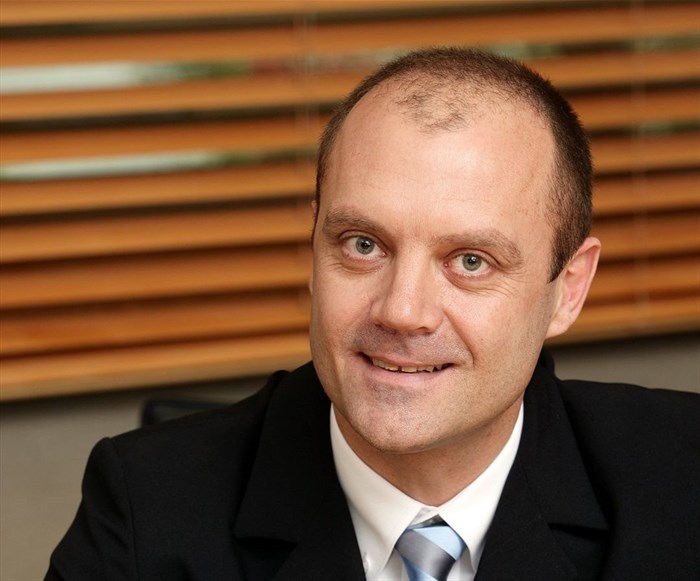To the casual observer, South Africa sometimes appears to be running on the spot, or taking two steps forward and one back. The news of a $750m, low-interest World Bank loan to help reduce our debt is warmly received but it's followed massive fuel-price hikes, or by unemployment statistics that spell out an ongoing national tragedy: millions trapped in cycle of generational poverty.

Ockert Berry, VP Operations for Ford South Africa
SA’s per capita public spending on education – an average of 5.57% – is higher than the world average of 4.5%, yet each year, thousands of pupils still fail to emerge from the education system as employable. Progress has been made, but we have far to go.
Nearly 30 years after democracy, we continue to ask questions of ourselves and each other, on how we can unlock our massive economic potential and move away from being among the most unequal countries in the world.
I pondered this recently when thinking ahead to a momentous year for Ford in SA. I recalled that some years ago, the insurance giant Old Mutual commissioned a study of SA’s possible futures, which yielded the Dinokeng Scenarios.
The participants were all leading names in business, government, academia and civil society. They suggested three possible scenarios: Walk Apart, Walk Behind and Walk Together.
In the first scenario, Walk Apart, the state loses its capacity to serve its citizens. It is flaccid and ineffectual and frustrates the citizenry, who eventually erupt in protest. The state responds with brutality, and a spiral of repression and resistance is perpetuated. Those who can afford to, retreat to enclaves where they are able to access the services the state fails to provide: security, healthcare, communications, transport, communications.
The second scenario, Walk Behind, sees the state as both authoritarian and ineffective, and disconnected from civil society, which becomes mute and compliant. The state’s capacity constraints mean it fails to earn revenue and in turn fails to deliver services. Insularity follows and the vulnerable are left to fend for themselves.
The third scenario is Walk Together: here the state creates an enabling environment for cross-sectoral partnerships to address inequities. This nurtures a collaborative environment that allows all partners to ask hard questions of themselves and each other, with a focus on finding solutions, rather than blamestorming. Authority and responsibility are shared. This extends to working together to prevent the country’s development initiatives from being highjacked for personal or political gain.
That approach ensures that there aren’t gaps or overlaps in efforts at socioeconomic development. Ordinary people consult and share authority in the interest of long-term sustainability. The citizenry holds government accountable and shares responsibility for policy outcomes and development.
Clearly the third scenario is the most preferable. But is it achievable? The panelists of the study warned, "This is not an easy path: the outcomes are open and are vulnerable to manipulation by stronger actors, and the alliances, pacts and partnerships required to address our challenges could be too slow and weak to be effective."
SA has no shortage of demagogues willing to highjack others’ efforts at a better world for their own agendas. But I’m optimistic because I’m seeing a version of Walk Together at work first-hand. The Tshwane Automotive Special Economic Zone (TASEZ), next to our Silverton Assembly Plant is an integrated public-private partnership (PPP) established to drive growth, create jobs and boost the economy. We work closely with all three spheres of government: the Department of Trade, Industry and Competition, Gauteng province and City of Tshwane.
It is the first SEZ of its kind: a new, region-based model for SEZs to attract domestic and international investment to help businesses become more competitive globally, and to create much-needed employment opportunities for surrounding communities. It is also the first to be implemented as a joint initiative between the public and private sectors, with Ford represented on the TASEZ board.
The TASEZ is a major component of Ford’s investment of $1.05bn (R15.8bn) in our manufacturing operations and supplier tooling. It’s a major undertaking that’s transforming our Silverton operation, as we increase our annual installed capacity to 200,000 vehicle per annum, which will support production of the next-generation Ford Ranger pickup for the domestic market and export, commencing towards the end of this year. The expansion makes the Silverton plant SA’s biggest manufacturing facility.
Our investment has added 1,200 incremental Ford jobs in SA, increasing our local workforce to 5,500. Crucially, it is also adding 10,000 new jobs within our local supplier network, boosting the total to 60,000 across the value chain. It is changing the lives of thousands of workers and provides a glimpse of what a cross-sectoral focus on economic development can achieve.
The project is proving that SA can be globally relevant and competitive and that working with the government is essential to unleashing that potential.
It’s also why we’re again working closely with the relevant departments, both the Gauteng and Eastern Cape provincial governments and their respective Special Economic Zones (TASEZ and COEGA), and state-owned enterprises (SOE) such as Transnet in developing the Gauteng-Eastern Cape High-Capacity Rail Freight Corridor. It is planned to link our Silverton Assembly Plant and TASEZ, with Gqeberha, which is home to Ford’s Struandale Engine Plant. It will carry all Ford’s inbound and outbound logistics through Gqeberha to boost higher production volumes for the Ford Ranger pickup, supporting exports to more than 100 markets.
Infrastructural development is complex and demanding, especially on the scale of Ford’s investment. None of the work we’ve committed to would be feasible without co-operation with all tiers of state.
SA faces, as I’ve said, massive challenges. But I also believe we have every resource to meet them if we do so together.
Ockert Berry is VP Operations for Ford South Africa.
































